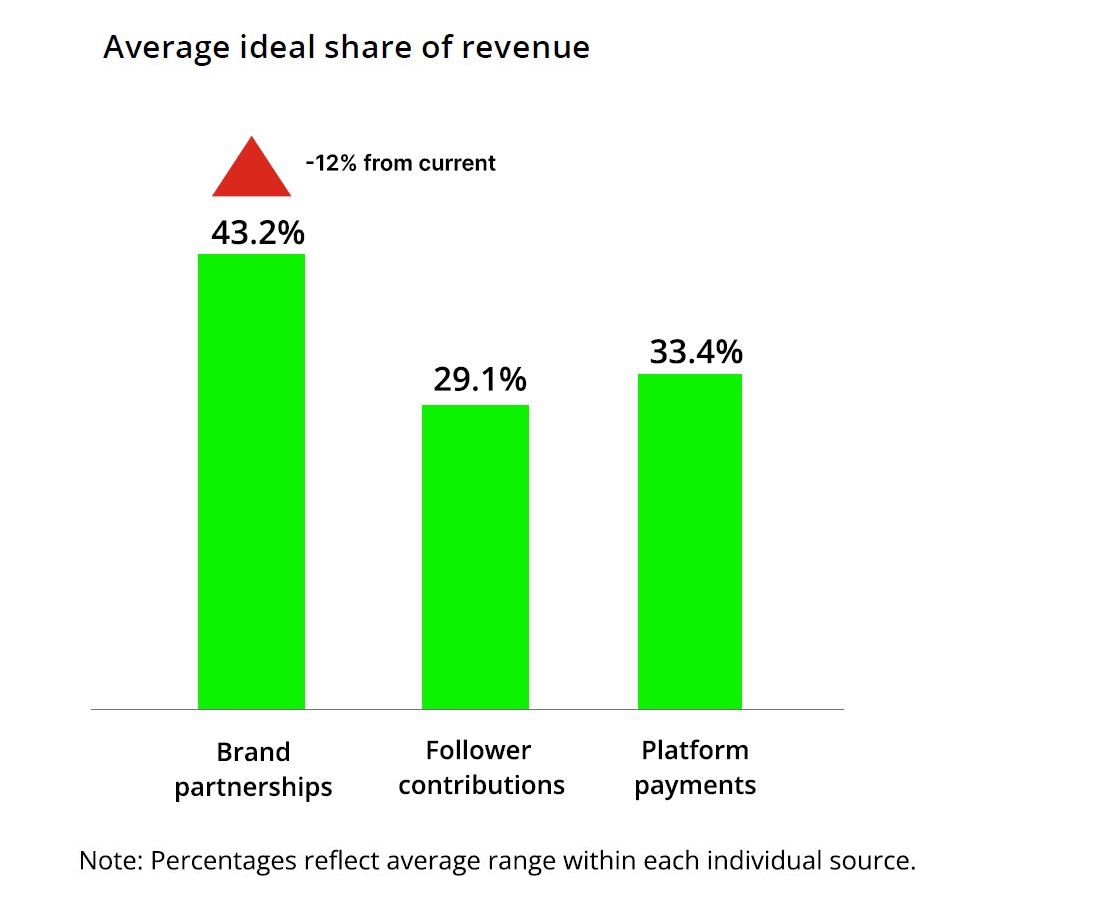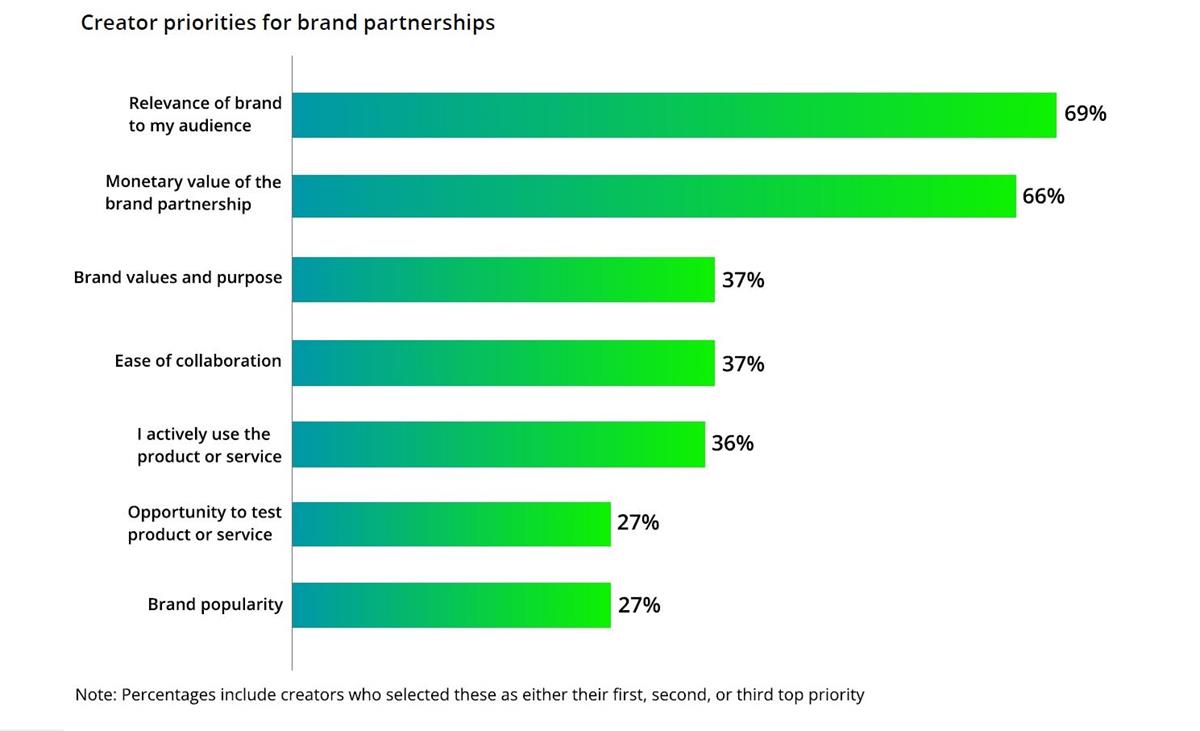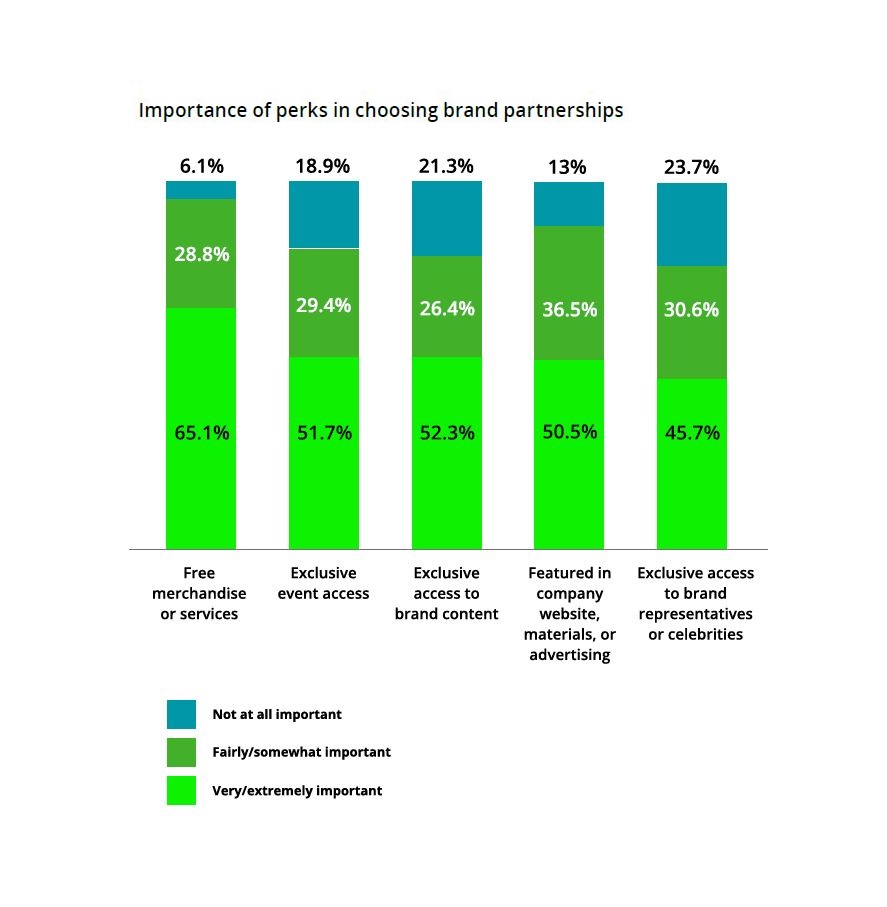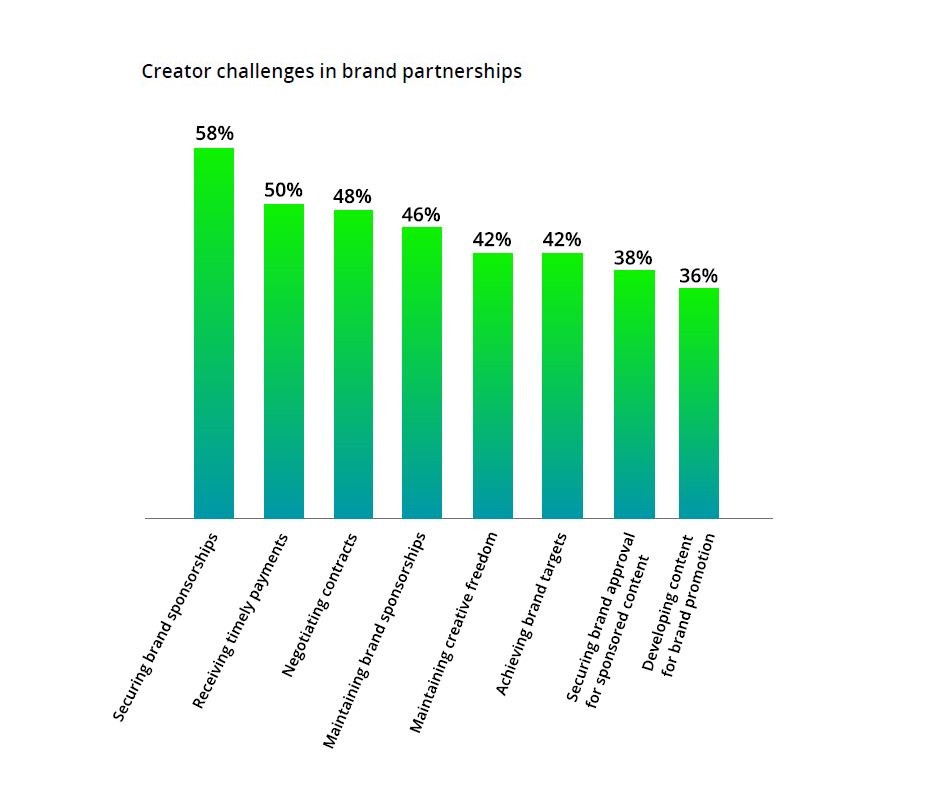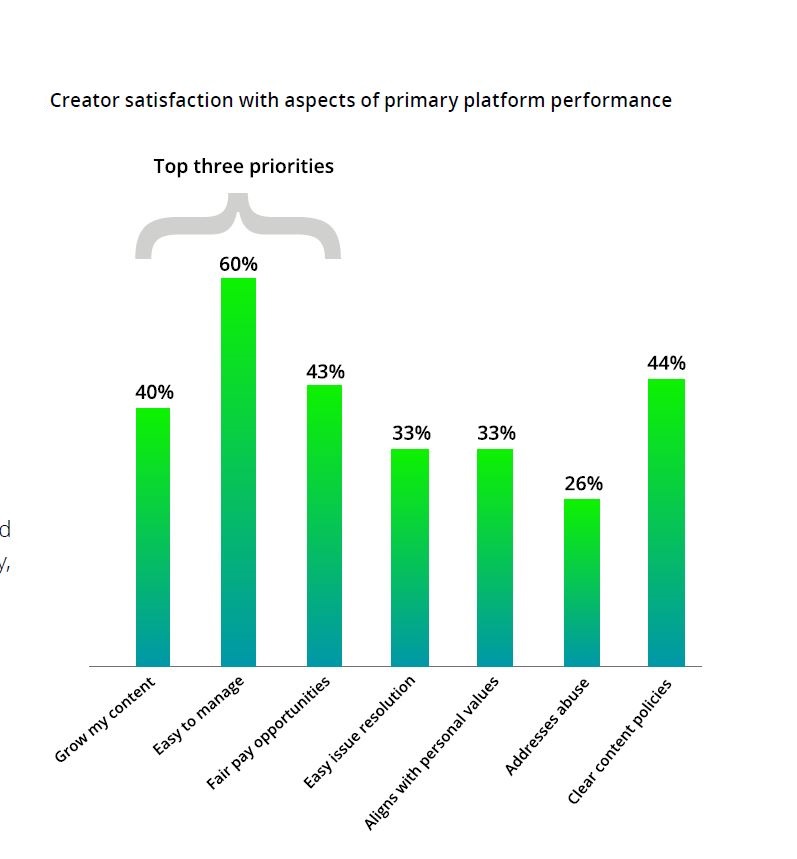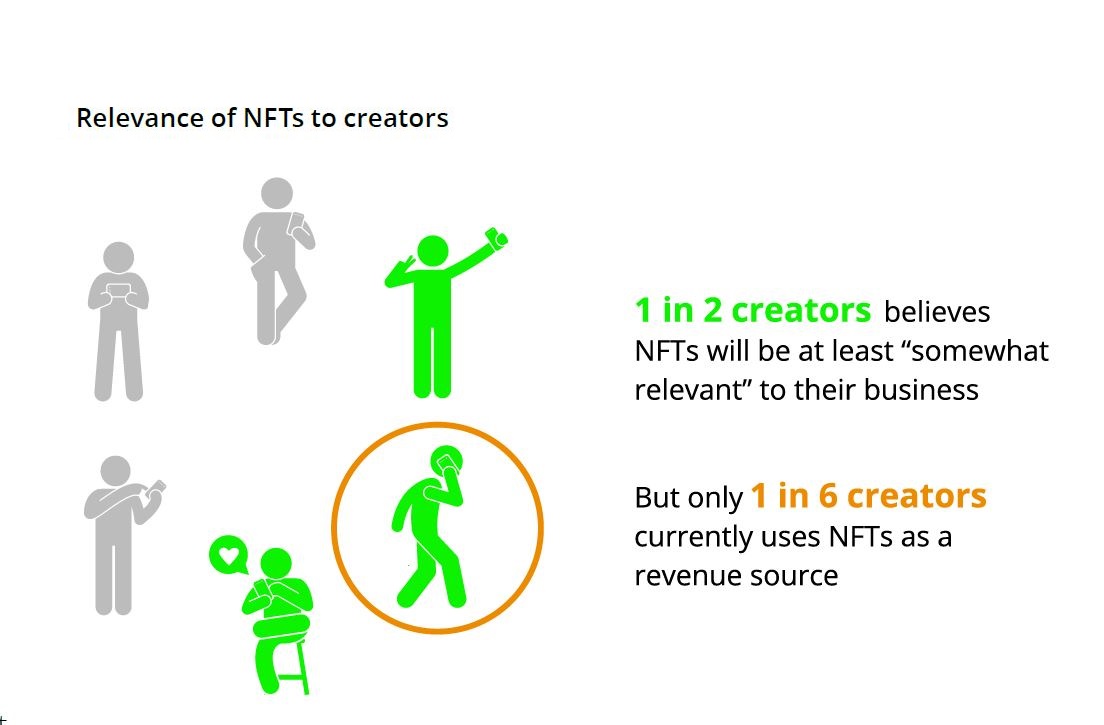
TL;DR
- Creators are looking for mutually beneficial brand collaborations that help them grow alongside brands they work. Their number one priority is that the platform helps grow their business — and platforms can appeal to this priority by investing in their creator marketplaces.
- While creators prioritize brands that resonate with their audiences, other factors such as brand values and ease of collaboration are also priorities.
- More than half of creators report difficulty finding brands to partner with, and platforms are well-situated to facilitate matches.
READ MORE: Creator economy in 3D: Maximizing opportunities between platforms, brands, and creators (Deloitte)
Many creators disproportionately rely on brand partnerships for their income, but they’re looking to diversify their income sources to drive growth.
This pivot also hints at a challenge many creators face in their efforts to maintain consistent partnerships, along with a desire for more dependable and long-term streams of income.
Deloitte suggests ways that brands and creators can collaborate better together in its survey of 400 creators.
Deloitte’s new research demonstrates how brands can become more competitive partners with creators in two ways. First, they can shift the nature of their creator collaborations from sponsorship to partnership. Then they can align with creators’ values and cater to their desire to gain exposure and grow their audiences in tandem with brands.
Nearly 70% of creators said their top priority in a brand partnership is ensuring the brand is relevant to their audience.
In fact, given the choice between general popularity and audience relevance, creators chose audience relevance by a nearly three-to-one margin.
Additionally, while brand relevance to audience appears to be creators’ primary consideration, 37% of creators regard the brand’s values and purpose as a top consideration — also surpassing brand popularity.
Like any business owner, creators want to be fairly compensated for their work. Their second-highest priority in choosing to work with a brand, just behind brand relevance, is the monetary value of the partnership.
Creators are ambitious — 64% forecast a substantial revenue increase within the next year. If brands are not able to meet fair payment standards to their creator partners, they should consider how they can assist with creators’ other priorities.
This can include “perks.” More than 50% of creators consider perks “very” or “extremely important” in their decision-making process.
Fifty-eight percent of creators report securing brand sponsorships to be difficult — a number that jumps to 80% for micro-creators (creators with fewer than 10,000 followers).
Deloitte suggests brands can ease these difficulties in several ways. For example, brands should strengthen their outreach efforts, especially among smaller creators who have the potential to grow alongside the brand. Brands can also publish clear guidelines for inbound creator inquiries, listing expectations and requirements for potential creator partnerships.
They can also reduce the strain on creators’ small businesses by streamlining the payment process. Per the survey, half of creators have difficulty receiving timely payments and note that payments generally take three to four weeks. Creators also explained that brands’ methods of issuing payments can be difficult to use and time-consuming to set up. Those who use NFTs as a revenue source report that this is the most difficult source of revenue to manage out of all those surveyed.
This is just one aspect of a platform’s performance that could be improved to benefit creators. Sixty percent of creators strongly agree their platforms make it easy for them to manage their content, while only about 40% of creators strongly agree their platforms offer fair opportunities to profit or help grow their business.
But what creators found missing the most is the ability of the platform to resolve technical difficulties, address issues of harassment or abuse, and promote values that resonate with creators. A quarter of those from the survey want platforms to better address instances of harassment and abusive behavior.
Deloitte notes that, “as platforms increasingly offer similar content media for creators, these secondary features will likely become critical to creator retention.”
Asked whether creators feel the metaverse will be relevant to their business in the next year, only 27% said yes. Even among those feeling secure in the metaverse relevance, the data suggests uncertainty around how or why they’ll engage with the metaverse.
CRUSHING IT IN THE CREATOR ECONOMY:
The cultural impact a creator has is already surpassing that of traditional media, but there’s still a stark imbalance of power between proprietary platforms and the creators who use them. Discover what it takes to stay ahead of the game with these fresh insights hand-picked from the NAB Amplify archives:
- How Creators (Professional and Otherwise) Are Making Money in the Creator Economy
- Almost 25% of Us Are Content Creators. Here’s Why That’s Awesome (and How It’s Actionable).
- Storytelling on Demand: It Has to Happen for the Creator Economy
- In the Creator Economy, Creator-Educators Contain Multitudes
- The Economy Part of the Creator Economy
- Why Community Is Everything for the Creator Economy


